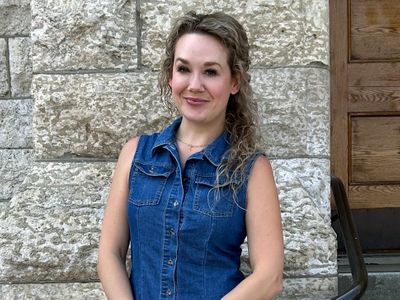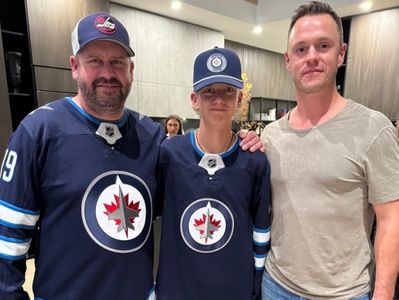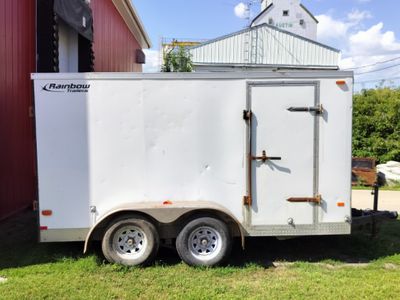Local News
Solving Amber McFarland’s disappearance: A writing investigator's perspective
Seventeen years after the disappearance of Amber McFarland, a Portage la Prairie native is taking a fresh, evidence-based look at the case, one that she hopes might help bring answers to a family still waiting for closure. Dr. Marjorie Zettler recently offered a deeply researched perspective on the 2008 disappearance of Amber McFarland. In her three-part series, she drew not only on public records and interviews, but also on statistical patterns in missing-person and cold case investigations. Zettler reflects on how her connection to the community shaped her involvement. “In 2008, at the time Amber disappeared, I was living over 1,000 miles away in the US, but some of my family members here helped with the search,” she notes. “I never actually knew Amber or her family or really anyone involved in this case. But over the past year or so, working on the story, I feel like I got to know Amber a little bit. And I do think about her every day now.” In this interview, she reflects on her motivations, the challenges she faced, and why she continues to believe the case can be resolved. Why the Story Matters Zettler notes that Amber’s case resonated with her on two levels; the personal tragedy and the community’s response. She says her background in science and writing offered her tools to explore the story in ways that go beyond previous coverage. She adds she hoped her work might prompt people with information (even those who had stayed silent) to come forward. Zettler continues that she conducted extensive research, including reaching out to experts in missing persons, cold cases, geographic profiling and non-family homicides, and speaking with the lead RCMP investigator, Amber’s mother, friends, and community officials. She says she also drew on national statistics — for example, on how often missing persons cases are resolved, or how frequently women victims are harmed by someone they know — to add context to Amber’s narrative. Related stories: Missing 17 years, mother presses for closure and justice Candlelight Vigil For Amber Belief in a Solvable Case On whether Amber’s case could still be solved, Zettler emphasizes her conviction that it is. She says she often thinks about Amber and believes “her case is solvable. But the public’s help is really needed to resolve it.” She explains that part of what convinced her is research showing that in many homicide cases, perpetrators confessed to someone in their lives prior to arrest. In some studies, “in about a third of cases, they had confessed to someone else, someone else in their life, a friend or a family member before they were ever apprehended.” She continues that another study she encountered found that new information from witnesses, including either new witnesses or previously silent ones, who played a role in clearing 63 per cent of cold cases. That, she says, reinforces her argument that people in the community can make a difference. Zettler adds that over 17 years, circumstances change and people may feel differently now than they did then. She says decisions made long ago might no longer matter; now, she argues, the priority should be reuniting Amber with her family. She notes that Amber’s family has never had a grave, no trial, no sense of closure; “they have nothing.” If locating Amber’s remains is possible, that outcome “would be very meaningful.” The Effort Behind the Coverage Zettler says she spent more than a year compiling research, reviews, interviews and analysis before publishing the articles, often working evenings and weekends around her regular commitments. She reflects that what began as a journalistic pursuit became deeply personal. Over time, she says, she feels as though she got to know Amber, despite never having met her, and now bears the story with her daily. She also emphasises her gratitude to the McFarland family for trusting her with the narrative, and to all who participated, read, shared, or engaged with the work. Zettler adds she is expanding the story’s reach: she is developing a consolidated Wikipedia page for the case, and has been approached by podcasters and other creators interested in telling Amber’s story again. Appeal to the public Zettler stresses that the case cannot move forward without help from the public. She directs her words to anyone who might hold information about Amber’s disappearance, whether or not they were directly involved. “If you are one of those people and you're listening today, I want you to know it is not too late to come forward,” notes Zettler. “Whatever your reasons were for not speaking up before, it really doesn't matter anymore. Everyone understands that good people sometimes find themselves in bad situations. What's most important is what you do going forward.” She adds that for those unwilling to speak directly with police, anonymous avenues exist. “If you don't want to go to the police, you can share whatever information you have anonymously through Crime Stoppers. But please, share it,” says Zettler. Zettler continues that Amber deserves to be reunited with her family, and her loved ones deserve the peace that comes from knowing. “Amber deserves to be found and to be reunited with her family. And her family, who've spent the last 17 years just adrift in this abyss of not knowing, they deserve some peace. And they deserve the opportunity to choose Amber's final resting place. You can give that to them.” RCMP weighs in The Manitoba RCMP, through its media liaison, declined to provide an interview regarding Amber McFarland’s case. In a written statement, the detachment confirmed the investigation remains open. “We are not able to accommodate an interview on this investigation. We can however, confirm that this investigation continues, and we are always appreciative of any new information from the public,” adds Michelle Lissel, (RCMP/GRC).







